All the workshops will be held at the Institut national de la recherche scientifique (INRS), 490 rue de la Couronne, Québec, QC G1K 9A9

Workshops (5 May)
DIY electronics for ecohydraulics (10:00-16:00) – Cost Can$240
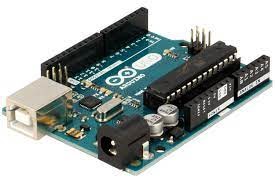
Welcome to the world of DIY electronics for ecohydraulics! In this one-day short course, you will learn the basics of open-source hardware and software. The aim of the course is to give you an introduction to Arduino-based microcontrollers, low-cost sensing of water temperature and water levels, logging your data as a text file to a standard SD card, and some tips and tricks we have learned along the way to keep your devices running both in the lab and in the field. As part of the course fee, you will be provided with a full data-logging system which you can take home with you to measure temperature and water levels. The code repository for this course will also be provided open source for you to continue to develop and share your own DIY designs. Registration costs include open-source software and hardware for logging water temperature and water level, which you can take home and continue developing your own DIY electronics, and coffee break.
This is a one-day course (6 hours):
10:00 – 11:00: The DIY electronics workflow
Introduction to microcontrollers, sensors, connecting sensors to microcontrollers, data collection, storage and power supply.
11:00 – 12:00: Connecting your first sensor PT1000 for water temperature measurement, ultrasonic water level sensor.
12:00 – 13:00: Lunch break
13:00 – 14:00: Logging data to SD, interfacing the SD card with the sensor data, including time stamps in data logging
14:00 – 15:00: Making your hardware and software work in wet environments
Common mistakes, tips and tricks to get DIY electronics working in the lab and field
15:00 – 16:00: Open discussion
Instructors:
- Dr. Juan Francisco Fuentes-Perez, Dept of Agricultural and Forest Engineering, University of Valladolid
- Jeffrey A. Tuhtan, Associate Professor, Dept of Computer Systems, Tallinn University of Technology
EcoENet workshop for students and early careers (12:30-16:30) – Absolutely Free!
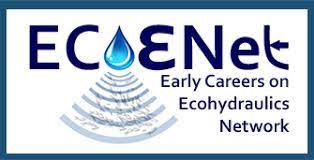
Join ECoENet’s Biannual Meeting: Navigating Ecohydraulic Challenges!
About the Workshop
Theme: Local Challenges & Global Networking in Ecohydraulics.
What to Expect
Interactive Sessions: Including fun activities, a keynote address, polls, and ice breakers.
Networking Opportunities: Connect with peers and experts in ecohydraulics.
Global Perspective: Focus on ecohydraulic research and practices in North America and beyond.
Feedback & Future Directions: Share your views and help shape the future of ecohydraulics.
Who Should Attend
Early career researchers and professionals.
Anyone passionate about interdisciplinary environmental research and networking.
Why Attend
Gain insights into the latest ecohydraulic and fish passages challenges and solutions.
Become a part of a vibrant community dedicated to advancing ecohydraulics.
Free opportunity to expand your knowledge and professional network.
Register Now: Don’t miss this opportunity to be part of a global ecohydraulics conversation! Join us in shaping the future of ecohydraulics at ecoenet.org
Application of MesoHABSIM workshop (13:00-16:00) – Cost Can$175
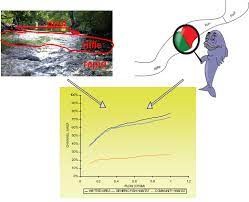
Mesohabitat Simulation Model (MesoHABSIM) is a planning tool for the effective river restoration planning. This physical habitat simulation model describes the utility of instream habitat conditions for aquatic fauna, allowing the user to simulate a change in habitat quality and quantity in response to alterations of flows or river morphology through human use of rivers. The accompanying Sim-Stream software integrates field collected physical habitat data with biological observations, and performs the calculations necessary to quantitatively evaluate the impact of human actions on the fish communities. These actions may include: water withdrawals, channel alteration, dam removal/construction, and climate change scenarios. Sim-Stream includes multiple reporting options such as community habitat rating curves, time series charts, ACTograms, and supports comparison of simulated scenarios with Restoration Alternative Analysis. MesoHABSIM has been applied worldwide for defining environmental flows at local and continental scale, river restoration and dam management planning. The half-a-day workshop will present the elements and procedure of model development, demonstrate the software and include river site visit for data collection exercise. The examples of applications will be presented and discussed.
Instructor:
Piotr Parasiewicz, Associate Professor, Head of River Fisheries Department, National Inland Fisheries Research Institute
Dam removal: Identifying & addressing critical issues (9:00-16:00) – Cost Can$200
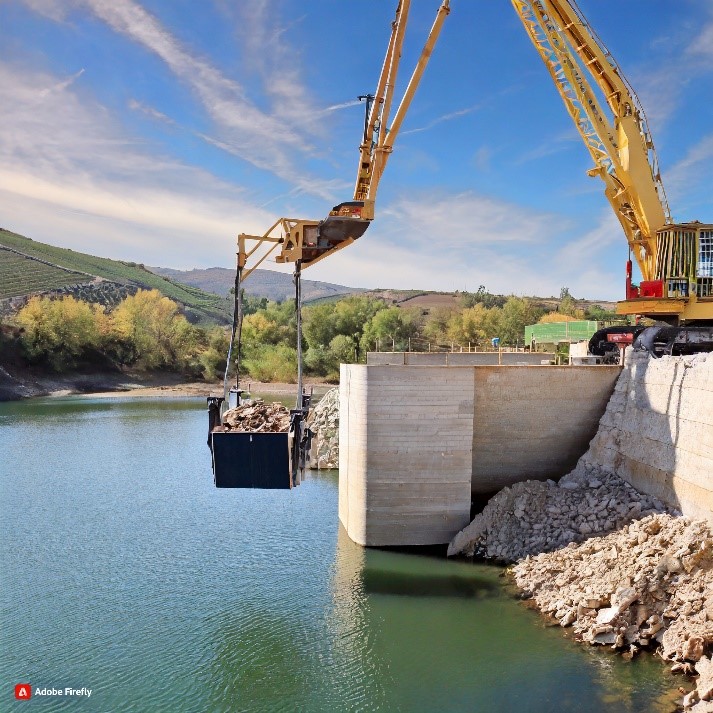
This highly interactive one-day course will help you develop a solid foundation in dam removal such that you can learn of the desktop and field data you need, readily identify critical issues in the field, and learn how to address these issues, particularly in engaging with the public. This course is targeted to river restoration practitioners in their early dam removal careers who are planning to remove dams and/or more complex sites, and are seeking guidance and tools with which they can better solve the various challenges they are likely face in future projects. The course will focus on the technical aspects of dam removal, including key issues relating to engineering, fluvial geomorphology, sediment management, hydrology and hydraulics, ecological impacts, regulatory requirements, and socioeconomic facets of the removal of dams.
Your instructors have been involved in the hundreds of dam removal projects in the United States over the last three decades, and have been involved in a wide range of dam removal efforts, globally. Our approach to this one-day course is to open a dialogue with workshop attendees, determine where they are on their journey to restore rivers, and share with them the many experiences we have encountered along our journeys. To meet expectations, we have developed this highly interactive short course, where participants will get a chance to engage in smaller groups to review project site data and maps, and identify and learn of the critical issues for actual dam sites. The instructors will guide you through the process, each providing their own specialized perspective in planning and assessment, riverine ecology, fluvial geomorphology, socioeconomics, and engineering.
- Laura Wildman, Save the Sound
- Mike Chelminski, Stantec
- Jim Turek, NOAA
- Gordon Clark, Stantec
- Joe Rathbun, Michigan DEQ
- Gwen MacDonald, Open Rivers programme
Nature-like fishway design (9:00-16:30) – Cost Can$200
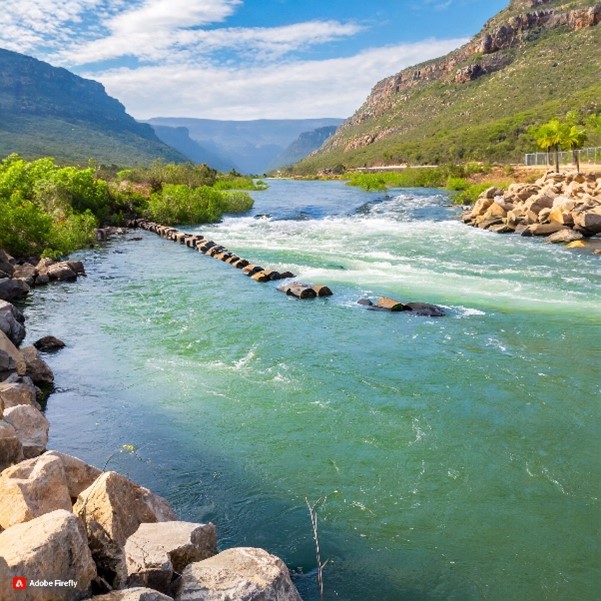
This instructor-led workshop will be organized by the American Fisheries Society – Bioengineering Section, with funding from the Resources Legacy Fund, to present a one-day nature-like fishway workshop. This in-person workshop will be instructed by several leading practitioners in the field of NLF implementation, including representatives from both private and public agencies. The goal of the workshop is to share knowledge of nature-like fishway design and long-term stability observations among practitioners, regulators, and operators to improve the collective awareness of contemporary NLF science and design methodologies to ultimately provide more effective and sustainable passage for fish.
This workshop is anticipated to include the following topics:
- History and state of nature-like fishways
- Application of NLFs to natural and built environments
- Site reconnaissance, project assessment, project development
- Identifying data and modeling needs and necessary in-field data collection
- Example design methods, practices, constraints, and uncertainties – also highlight current/forthcoming design guidance documents
- Construction methods and oversight
- Monitoring
- Lessons learned from previously constructed NLFs
- Risk evaluation in NLF Design
- Getting the right rocks and placing them for long-term stability
Instructors:
Design, Construction and Operation of PIT Tag Monitoring Systems (9:00-16:00) ─ Cost Can$75
A one-day course about designing, constructing, and operating PIT tag monitoring systems for fish passage, including practical demonstrations. On completion of the course, participants will have a basic understanding of the fundamentals of RFID technology for fish tracking using PIT telemetry and concepts in antenna design. The course can be divided into four main subjects: 1) RFID for Fish and Wildlife Tracking; 2) Building a PIT tag monitoring system; 3) PIT tag antennas; and 4) Interactive workshop.
The participants will have the opportunity to have hands-on experience with PIT tag readers.
Instructor:
Warren Leach, Oregon RFID
Dr. Hugo Marques, Fishtag Environmental Consulting